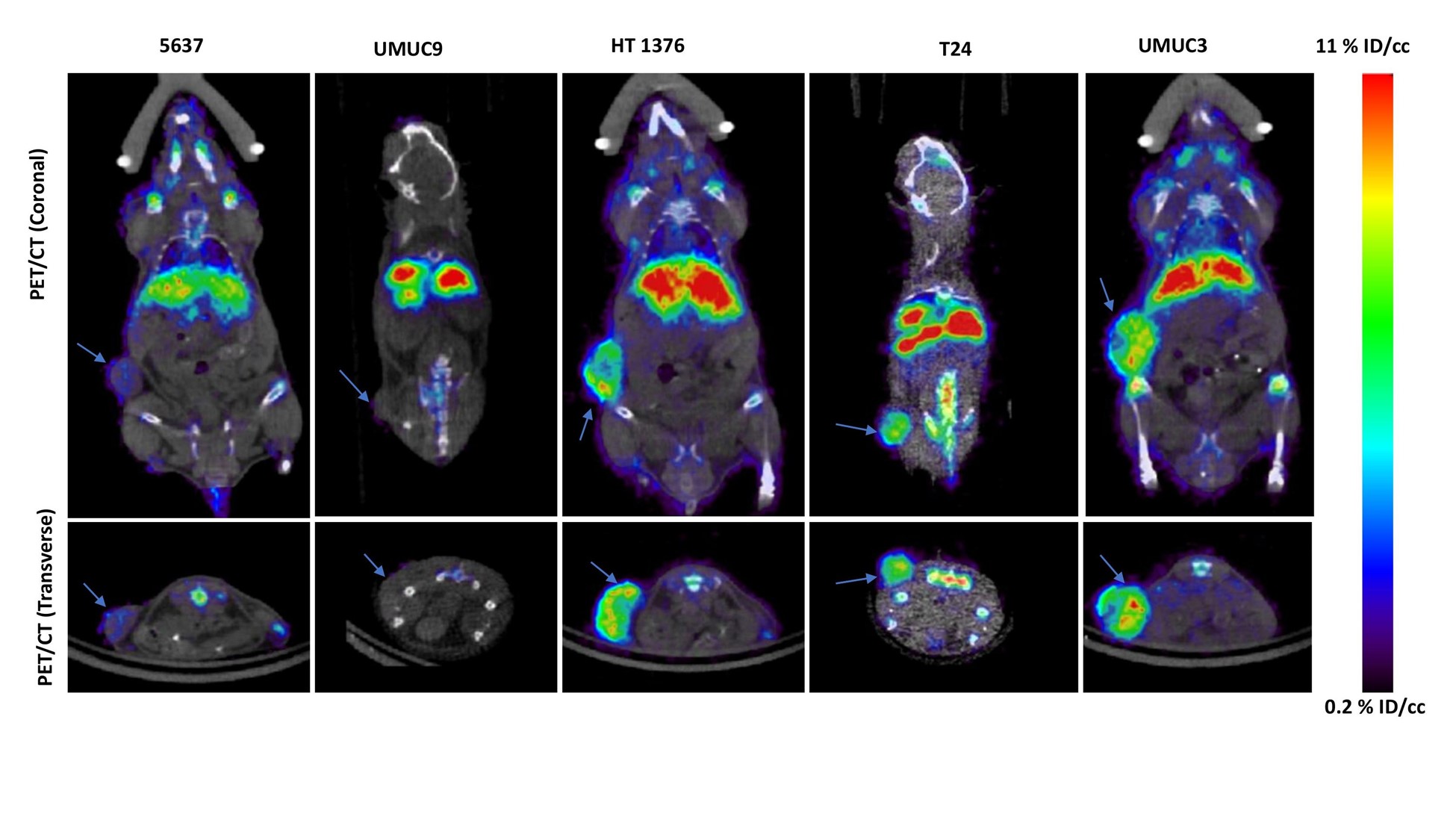Radiopharmaceutical Therapy Target Discovered for Metastatic Bladder Cancer
Images

A new therapeutic target has been discovered for metastatic bladder cancer, according to research presented at the 2023 Society of Nuclear Medicine and Molecular Imaging Annual Meeting. The cell surface tumor antigen CUB domain containing protein 1 (CDCP1) was found to be present in all bladder cancer subtypes, most notably in an aggressive subtype that cannot be treated effectively with current therapies.
Bladder cancer is the second most common malignancy of the genitourinary tract, leading to more than 17,000 deaths in the United States each year. Despite recent FDA approvals of bladder cancer therapies, metastatic bladder cancer remains incurable, and new treatments strategies are needed.
“We know that bladder cancer is molecularly heterogeneous and uniformly fatal,” said Shalini Chopra, PhD, postdoctoral researcher at University of California, San Francisco, in San Francisco, California. “In this research we investigated the cell surface protein CDCP1 to see whether it is a viable target for bladder cancer radiopharmaceutical therapy using radiolabeled anti-CDCP1 antibodies.”
In the study, CDCP1 expression was evaluated in four bladder cancer datasets containing more than 1,000 biopsies. Immunohistochemistry was used to determine if CDCP1 was present in the biopsies, and CDCP1 expression was evaluated in patient-derived xenografts and cell lysates by immunoblot, flow cytometry and saturation binding assays. Tumor detection in mouse bladder cancer models was tested using 89Zr-4A06, a monoclonal antibody that targets CDCP1. Mice were then treated with 177Lu-4A06 to evaluate antitumor effects.
CDCP1 was expressed in 53% of primary bladder cancer biopsies, with the highest expression in the aggressive basal/squamous subtype. 89Zr-4A06 detected five human bladder cancer xenografts, and 177Lu-4A06 inhibited the growth of the bladder cancer xenografts as well.
“These data establish for the first time that CDCP1 is expressed in bladder cancer and introduces a new therapeutic target for this common and deadly malignancy,” noted Chopra. “CDCP1-directed therapeutics may add to the current standard of care and improve the survival rate of patients with metastatic bladder cancer. As there are not many nuclear medicine treatments available for bladder cancer, we hope that this research can generate excitement among fellow nuclear medicine researchers to explore the disease and fill existing gaps in treatment.”